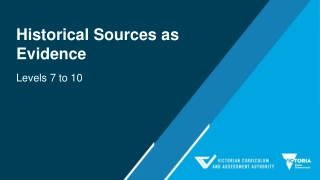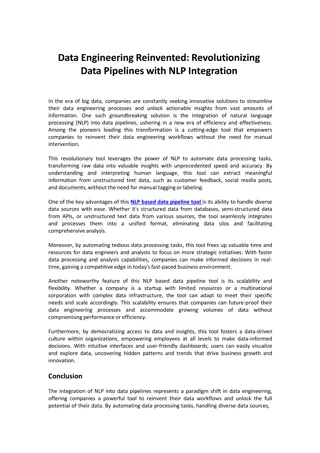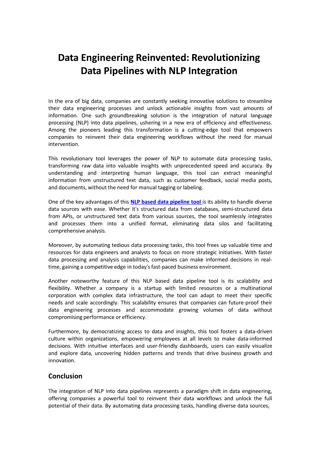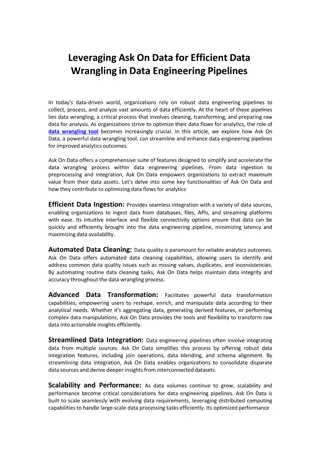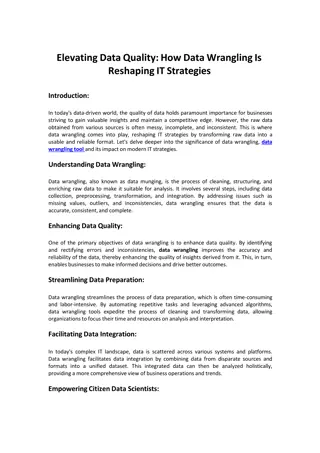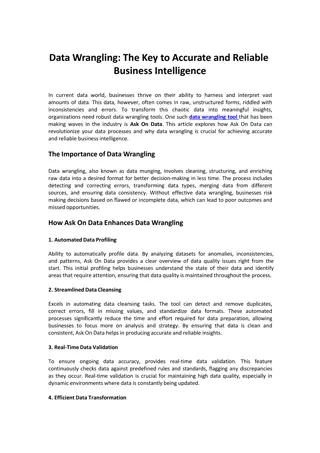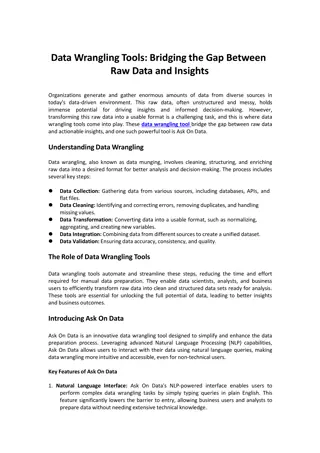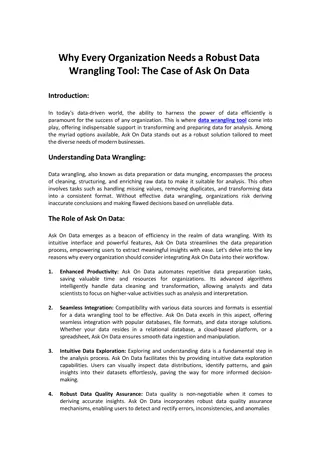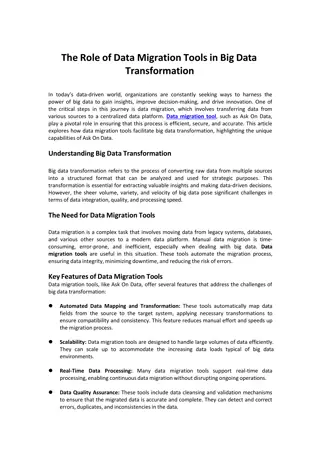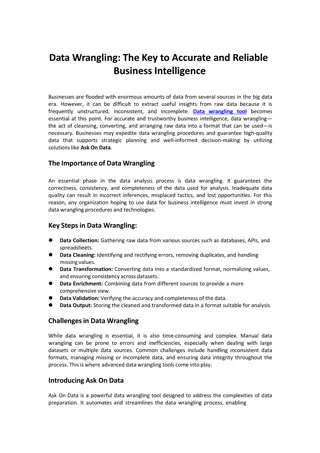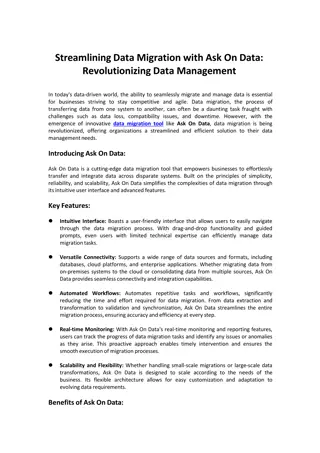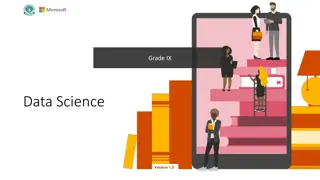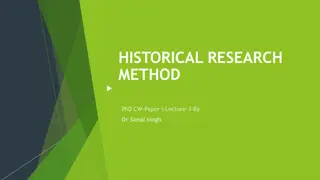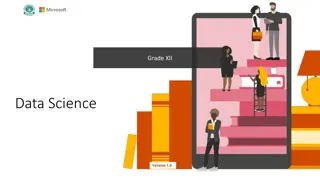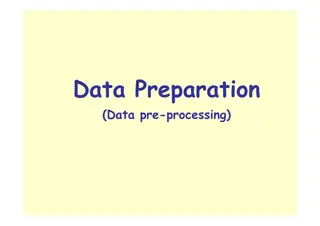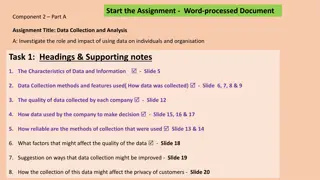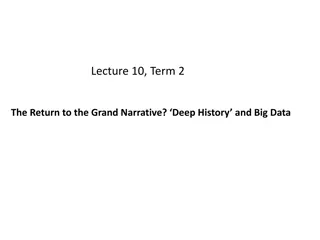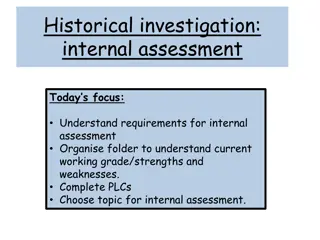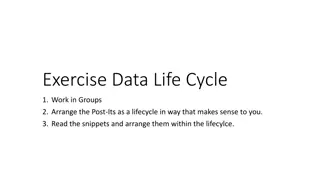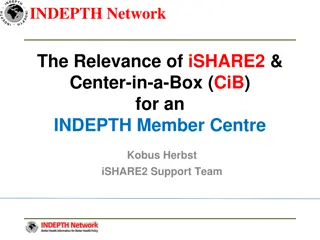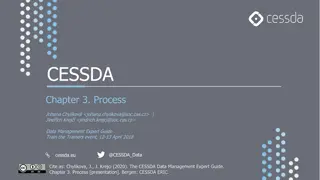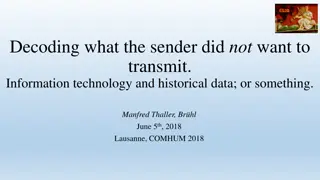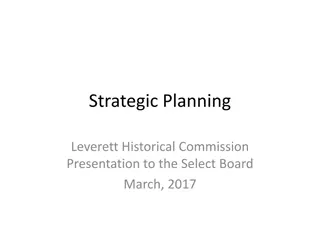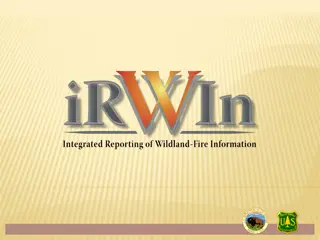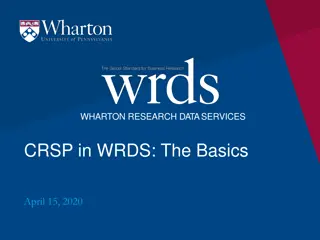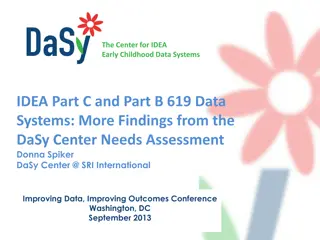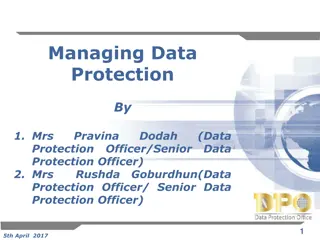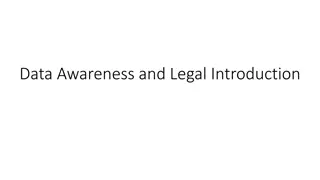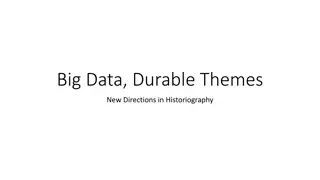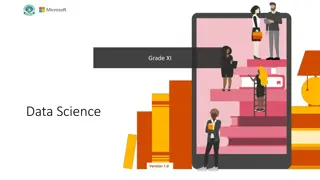Historical Sources as Evidence
Explore the importance of historical sources as evidence in the Victorian Curriculum History context, focusing on how students analyze, evaluate, and utilize sources to create historical explanations and arguments. Discover the significance of primary and secondary sources, perspectives of historica
1 views • 46 slides
The Digital Personal Data Protection Act 2023
The Digital Personal Data Protection Act of 2023 aims to regulate the processing of digital personal data while balancing individuals' right to data protection and lawful data processing. It covers various aspects such as obligations of data fiduciaries, rights of data principals, and the establishm
3 views • 28 slides
NCI Data Collections BARPA & BARRA2 Overview
NCI Data Collections BARPA & BARRA2 serve as critical enablers of big data science and analytics in Australia, offering a vast research collection of climate, weather, earth systems, environmental, satellite, and geophysics data. These collections include around 8PB of regional climate simulations a
6 views • 22 slides
Revolutionizing with NLP Based Data Pipeline Tool
The integration of NLP into data pipelines represents a paradigm shift in data engineering, offering companies a powerful tool to reinvent their data workflows and unlock the full potential of their data. By automating data processing tasks, handling diverse data sources, and fostering a data-driven
9 views • 2 slides
Revolutionizing with NLP Based Data Pipeline Tool
The integration of NLP into data pipelines represents a paradigm shift in data engineering, offering companies a powerful tool to reinvent their data workflows and unlock the full potential of their data. By automating data processing tasks, handling diverse data sources, and fostering a data-driven
7 views • 2 slides
Ask On Data for Efficient Data Wrangling in Data Engineering
In today's data-driven world, organizations rely on robust data engineering pipelines to collect, process, and analyze vast amounts of data efficiently. At the heart of these pipelines lies data wrangling, a critical process that involves cleaning, transforming, and preparing raw data for analysis.
2 views • 2 slides
How Data Wrangling Is Reshaping IT Strategies in Deep
Data wrangling tool like Ask On Data plays a pivotal role in reshaping IT strategies by elevating data quality, streamlining data preparation, facilitating data integration, empowering citizen data scientists, and driving innovation and agility. As businesses continue to harness the power of data to
2 views • 2 slides
Data Wrangling like Ask On Data Provides Accurate and Reliable Business Intelligence
In current data world, businesses thrive on their ability to harness and interpret vast amounts of data. This data, however, often comes in raw, unstructured forms, riddled with inconsistencies and errors. To transform this chaotic data into meaningful insights, organizations need robust data wrangl
0 views • 2 slides
Bridging the Gap Between Raw Data and Insights with Data Wrangling Tool
Organizations generate and gather enormous amounts of data from diverse sources in today's data-driven environment. This raw data, often unstructured and messy, holds immense potential for driving insights and informed decision-making. However, transforming this raw data into a usable format is a ch
0 views • 2 slides
Why Organization Needs a Robust Data Wrangling Tool
The importance of a robust data wrangling tool like Ask On Data cannot be overstated in today's data-centric landscape. By streamlining the data preparation process, enhancing productivity, ensuring data quality, and fostering collaboration, Ask On Data empowers organizations to unlock the full pote
0 views • 2 slides
The Role of Data Migration Tool in Big Data with Ask On Data
Data migration tools are indispensable for organizations looking to transform their big data into actionable insights. Ask On Data exemplifies how these tools can streamline the migration process, ensuring data integrity, scalability, and security. By leveraging Ask On Data, organizations can achiev
0 views • 2 slides
The Key to Accurate and Reliable Business Intelligence Data Wrangling
Data wrangling is the cornerstone of effective business intelligence. Without clean, accurate, and well-organized data, the insights derived from analysis can be misleading or incomplete. Ask On Data provides a comprehensive solution to the challenges of data wrangling, empowering businesses to tran
0 views • 2 slides
Know Streamlining Data Migration with Ask On Data
In today's data-driven world, the ability to seamlessly migrate and manage data is essential for businesses striving to stay competitive and agile. Data migration, the process of transferring data from one system to another, can often be a daunting task fraught with challenges such as data loss, com
1 views • 2 slides
Challenges and Solutions in Implementing Historical Competencies in Teaching
Explore the complexities and obstacles faced in implementing historical competencies in teaching, as discussed by Jens Aage Poulsen, a senior lecturer and researcher at HistoryLab, University College Lillebaelt, Denmark. The content delves into competence-based curriculum, core historical competenci
0 views • 7 slides
Exploring Data Science: Grade IX Version 1.0
Delve into the world of data science with Grade IX Version 1.0! This educational material covers essential topics such as the definition of data, distinguishing data from information, the DIKW model, and how data influences various aspects of our lives. Discover the concept of data footprints, data
1 views • 31 slides
Understanding Historical Research Methods
Historical research is a systematic approach to investigating past events, developments, and experiences. It involves critical examination of evidence, interpretation of sources, and tracing of historical trends to gain insights into social changes. Various definitions by scholars like Kerlinger, Wh
1 views • 21 slides
Understanding Historical Research: Methods, Purposes, and Aims
Historical research involves investigating past events systematically to provide a dynamic explanation, interpretation, and understanding of the past. It aims to uncover unknown aspects, answer unexplored questions, and link past happenings to the present to enrich human culture and encourage interd
0 views • 20 slides
Understanding Data Governance and Data Analytics in Information Management
Data Governance and Data Analytics play crucial roles in transforming data into knowledge and insights for generating positive impacts on various operational systems. They help bring together disparate datasets to glean valuable insights and wisdom to drive informed decision-making. Managing data ma
0 views • 8 slides
Understanding Data Governance and Data Privacy in Grade XII Data Science
Data governance in Grade XII Data Science Version 1.0 covers aspects like data quality, security, architecture, integration, and storage. Ethical guidelines emphasize integrity, honesty, and accountability in handling data. Data privacy ensures control over personal information collection and sharin
7 views • 44 slides
Importance of Data Preparation in Data Mining
Data preparation, also known as data pre-processing, is a crucial step in the data mining process. It involves transforming raw data into a clean, structured format that is optimal for analysis. Proper data preparation ensures that the data is accurate, complete, and free of errors, allowing mining
1 views • 37 slides
Understanding Data Collection and Analysis for Businesses
Explore the impact and role of data utilization in organizations through the investigation of data collection methods, data quality, decision-making processes, reliability of collection methods, factors affecting data quality, and privacy considerations. Two scenarios are presented: data collection
1 views • 24 slides
The Role of History Writing in Contemporary Academia
The discussion revolves around the practice and purpose of history writing post-Enlightenment, exploring concepts such as human agency, historical change, and the historian's role. It questions the objectivity of historical facts, delves into the influence of the historian's environment, and contemp
0 views • 28 slides
Requirements for Historical Investigation Internal Assessment
Understand the 25% weightage internal assessment comprising 3 sections for a historical investigation. Focus on source evaluation, investigation, and reflection within a 2,200-word limit. Choose a historical topic, analyze primary and secondary sources, and consider causation, consequence, continuit
0 views • 18 slides
Understanding Data Life Cycle in a Collaborative Setting
Explore the journey of data from collection to preservation in a group setting. Post-its are arranged to represent the different stages like Analyzing Data, Preserving Data, Processing Data, and more. Snippets cover tasks such as Collecting data, Migrating data, Managing and storing data, and more,
0 views • 4 slides
Enhancing Data Management in INDEPTH Network with iSHARE2 & CiB
INDEPTH Network emphasizes the importance of iSHARE2 & CiB to enhance data sharing and management among member centers. iSHARE2 aims to streamline data provision in a standardized manner, while CiB provides a comprehensive data management solution. The objectives of iSHARE2 include facilitating data
0 views • 17 slides
Understanding Historical Context in Skills Development Discourses
Exploring the evolution of apprenticeship and skills development through historical sociology, historical futures, modes of justification, and complexity concepts. Emphasizing the importance of nuanced historical understanding to navigate contemporary challenges in South Africa's skills development
0 views • 29 slides
Effective Strategies for Data Entry Integrity and Minimizing Errors
The chapter and subchapter discuss the importance of data integrity in the data management process, specifically focusing on data entry procedures, authenticity, and minimizing errors. It covers traditional manual data entry methods versus newer automated technologies, such as CAPI, and offers strat
0 views • 31 slides
Exploring Historical Data Through Information Technology
Delve into the intersection of information technology and historical data with Manfred Thaller at COMHUM 2018. Follow the journey of historical research tools developed to understand demographic behaviors, societal changes, and the impact of agricultural and industrial advancements on population gro
0 views • 85 slides
Leverett Historical Commission Strategic Planning Presentation Overview
Leverett Historical Commission identifies issues with ad hoc requests, lack of clarity on historical property significance, and inadequate maintenance plans. A strategic plan is needed to define assets, determine significance, create guidelines, prioritize restoration efforts, and establish funding
0 views • 9 slides
Advancing Wildland Fire Information Technology with IRWIN Development
IRWIN (Integrated Reporting of Wildland Fire Information) is a system designed to streamline data entry, enhance data consistency, and provide authoritative operational data for managing wildland fires. It emphasizes interoperable solutions, reducing complexity for users. Special focus areas include
0 views • 14 slides
Understanding CRSP Data Services in WRDS
Exploring the basics of CRSP data services in WRDS, this content covers the popularity of CRSP, highlights of the data, types of CRSP data available, and how the data is structured. It delves into the stock market data for US equities, including historical identifiers and key information on prices,
0 views • 15 slides
Exploring Historical Narratives through Music and Art
This submission presents two original compositions that delve into historical narratives through a unique blend of music and visual art. The compositions aim to reinterpret stories from the past, creating innovative structures and forms. By intertwining various perspectives and utilizing cinematic t
0 views • 8 slides
Early Childhood Data Systems Governance and Data Quality Assessment
This content highlights the importance of data governance in early childhood data systems, focusing on Part C and Part B 619 data systems. It discusses the findings from the DaSy Center needs assessment, covering topics such as data governance, data quality, and procedures for ensuring accurate and
0 views • 23 slides
Understanding Data Protection Regulations and Definitions
Learn about the roles of Data Protection Officers (DPOs), the Data Protection Act (DPA) of 2004, key elements of the act, definitions of personal data, examples of personal data categories, and sensitive personal data classifications. Explore how the DPO enforces privacy rights and safeguards person
0 views • 33 slides
Historical Source Analysis Exam Questions Overview
The provided content outlines exam questions related to historical sources, guiding students on analyzing, evaluating, and interpreting information from different sources. The questions cover a range of topics such as learning from sources, assessing accuracy, understanding significance, and making
0 views • 12 slides
Understanding Data Awareness and Legal Considerations
This module delves into various types of data, the sensitivity of different data types, data access, legal aspects, and data classification. Explore aggregate data, microdata, methods of data collection, identifiable, pseudonymised, and anonymised data. Learn to differentiate between individual heal
0 views • 13 slides
Developing Historical Thinking Skills in AP World History
AP History classes aim to cultivate apprentice historians by fostering historical thinking skills (HTS). These skills include Chronological Reasoning, Comparison and Contextualization, Crafting Historical Arguments, and Historical Interpretation. Each skill set equips students with the ability to an
0 views • 15 slides
Quantitative Research Framework for Historical Disciplines
Scholarly communities in historical disciplines are combining quantitative and qualitative methods to study phenomena that change over time. The proposed general methodological reflection aims to enhance research in historical linguistics through quantitatively driven models and claims. Quantitative
0 views • 18 slides
Perspectives on Big Data and Historiography: A Deep Dive into New Directions
Explore the intersection of big data and historiography through insightful essays on the significance of big data, its historical prelude, current usage, and the evolving understanding of the self in history. Delve into discussions on the purpose, power, and implications of big data in shaping histo
0 views • 12 slides
Understanding Ethics and Data Governance in Data Science
Evolution of data ecosystem, importance of data ethics for data scientists, and understanding data governance framework are crucial aspects covered in this content. Examples of data breaches highlight the need for ethical data collection practices, while implementing a data governance framework ensu
0 views • 77 slides
